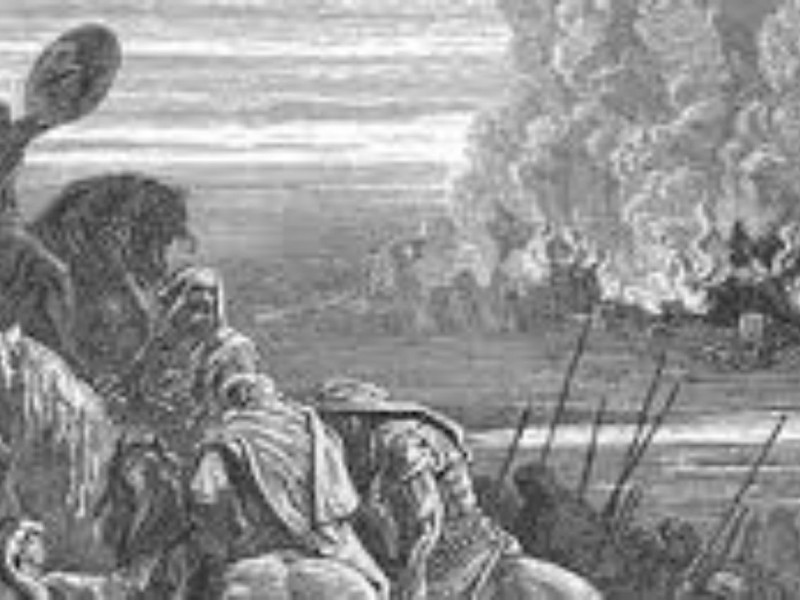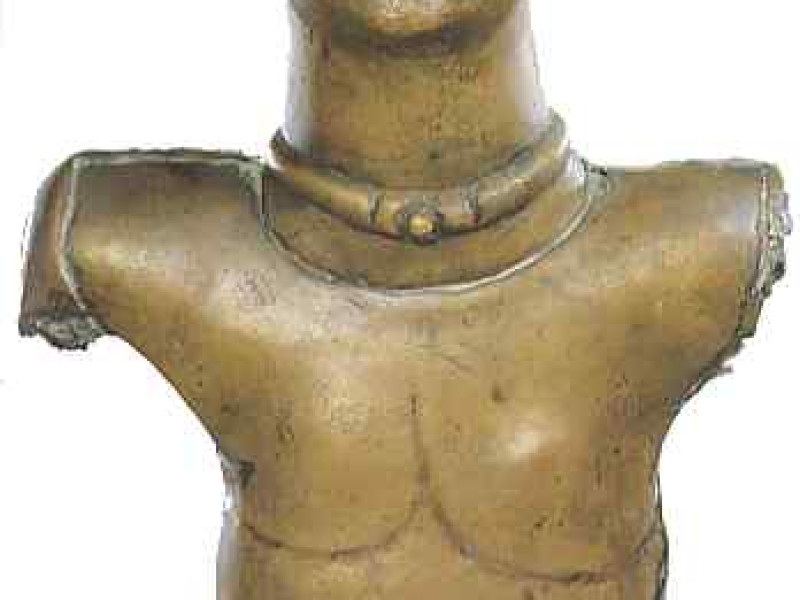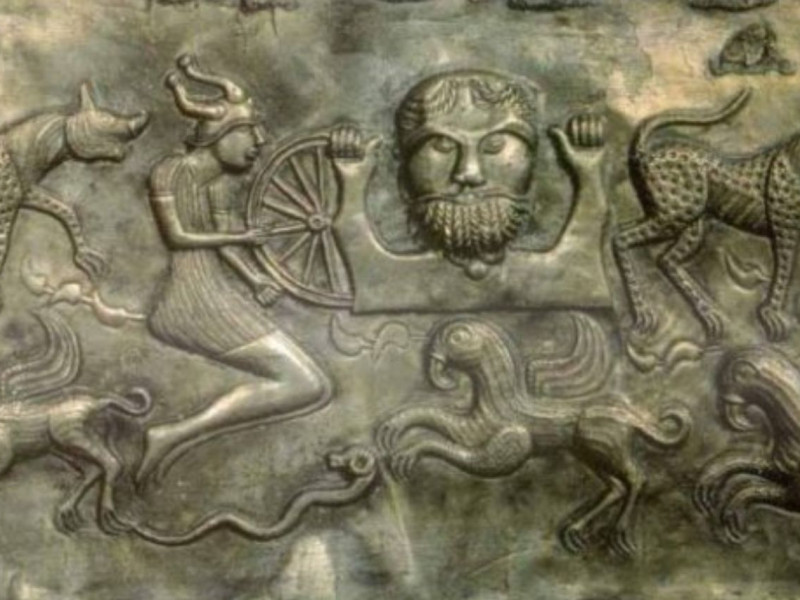Lugh
Lugh was the son of Cian (Kian), son of Danu and Dian Cécht, and Ethlinn (Ethnea or Eithliu), daughter of Balor, a Fomorian champion (leader).
Lugh was a popular sun god, worshipped throughout the Celtic world. In Gaul he was identified as Lugus or Lug. Because Lugus was identified as the solar god, the Greeks identified Lugus with the sun god Apollo. In Wales he was called Lleu, while in Ireland he was called Lugh or Lug.
Lugh was considered as a later arrival of deity to Ireland, who probably originated from Gaul (France and northern Italy). Lugh probably displaced the ancient tribal god named Tograin. Lugh was associated with a Celtic autumn festival called Lugnasad, held on August 1. It was also dedicated to Tailtiu, Lugh's Firbolg foster mother.
He was popularly called Lugh Lamfada - "Lugh of the Long Arms", as well as Lugh Samildánach - "Skilled in All the Arts". Caesar and the Romans associated him with the Roman god Mercury (Greek Hermes).
Balor, Lugh's maternal grandfather, had learned that his daughter's son would one day kill him. Balor tried to unsuccessfully confine his daughter Ethlinn, but Cian, with the help of a druidess named Brióg, managed to seduce Ethlinn. Ethlinn gave birth to triplets. Balor tried to have his grandsons killed, but either Brióg or Mananán saved one of the infants (Lugh).
Mananán or his father Cian left Lugh with his foster father Goibhniu, who taught Lugh all the skills, or Tailtiu, who was formerly the wife of Firbolg king named Eochaid Mac Eirc. Tailtiu and her second (Danann) husband Eochaid Garb Mac Dúach became Lugh's foster parents. Lugh had nine foster fathers who were meant to protect him from battle; they included Echdam, Eru, Fedlimid, Fosad, Ibar (Iubor), Minn, Rechtaid Finn, Scibar and Toulusdam.
Lugh had many servants serving him. His cupbearers were named Dathe, Drucht, Glan, Gle, Glesse, Taé, Talon and Trog. Below is the list of charioteers, including the names of the horses, chariots and goads:
chariots | charioteers | goads | horses |
Luachta | Medol | Fes | Can |
Anagat | Medón | Res | Doriadha |
Achad | Moth | Roches | Romuir |
Feochair | Mothach | Anagar | Laisad |
Fer | Foimtinne | Ilach | Fer Forsaid |
Golla | Tenda | Canna | Sroba |
Fosad | Tres | Riadha | Airchedal |
Cráeb | Morb | Búaid | Ruadar |
Carpat |
|
| Allriadha |
|
|
| Rocedal |
Lugh possessed a magic sword called Freagarthach (the "Answerer"), one of the four treasures of the Tuatha Dé Danann from the city of Findias. Lugh also possessed an invincible spear from the city of Gorias.
As revenge for death of his father, Lugh refused to heal the mortal wounds of the sons of Turenne with his magic pigskin.
Lugh gained or borrowed Mananan's magical ship, Wave-sweeper. Lugh's dog was called Failiais.
At the end of the war, Lugh became king of Ireland and ruled for 40 years. Cermait, the son of Dagda, seduced Lugh's unnamed wife. Lugh killed Cermait for adultery with his wife. Cermait had three sons – MacCuill, MacCecht and MacGrené (MacGrene). They avenged their father's death by killing Lugh at Uisnech.
Lugh was said to have four other wives: Búi and her sister Nas; Echtach and Englic.
His most famous son was Cú Chulainn (Cu Chulainn), the greatest hero in Irish myth. Lugh abducted Dectera, daughter of the Ulster's chief druid, Cathbad. When Conchobar and his warriors found Dectera, she gave them a newly born infant, whom they named Sétanta (Setanta).
Lugh helped his son several times, especially during the Cattle Raid of Cooley. Lugh fought in Cú Chulainn's guise for three days. Lugh allowed his son to heal and recover after the hero's encounter with Morrigan.
Related Information
Name
Lugh – "Light" or "Lynx".
Lugh Mac Ethnenn.
Lugh Lamfada ("Lugh of the Long Arm").
Lugh Samildánach ("Skilled in All the Arts").
Lug, Lugh (Irish).
Lugus, Lugos (Gallic).
Lleu (Welsh); Lleu Llaw Gyffes ("Lleu of the Dexterous Hand").
Related Articles
See also Lleu and Lugus.
Cian (Kian), Manannán MacLir, Dagda, Balor, Cú Chulainn.
Book of Invasions; Ulster Cycle.
By Jimmy Joe





